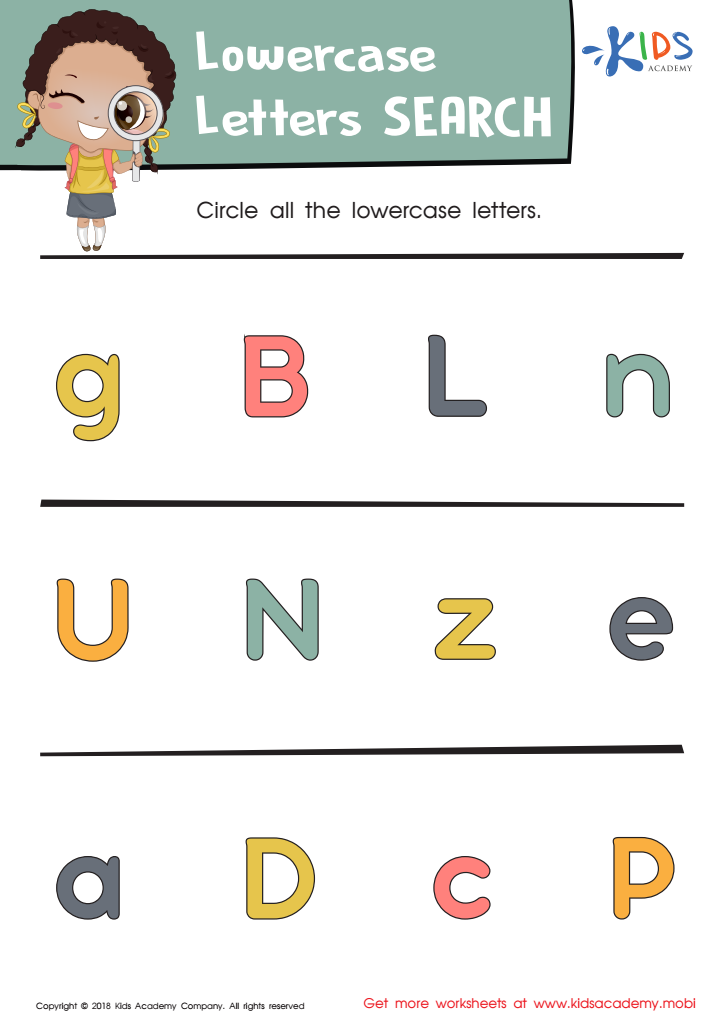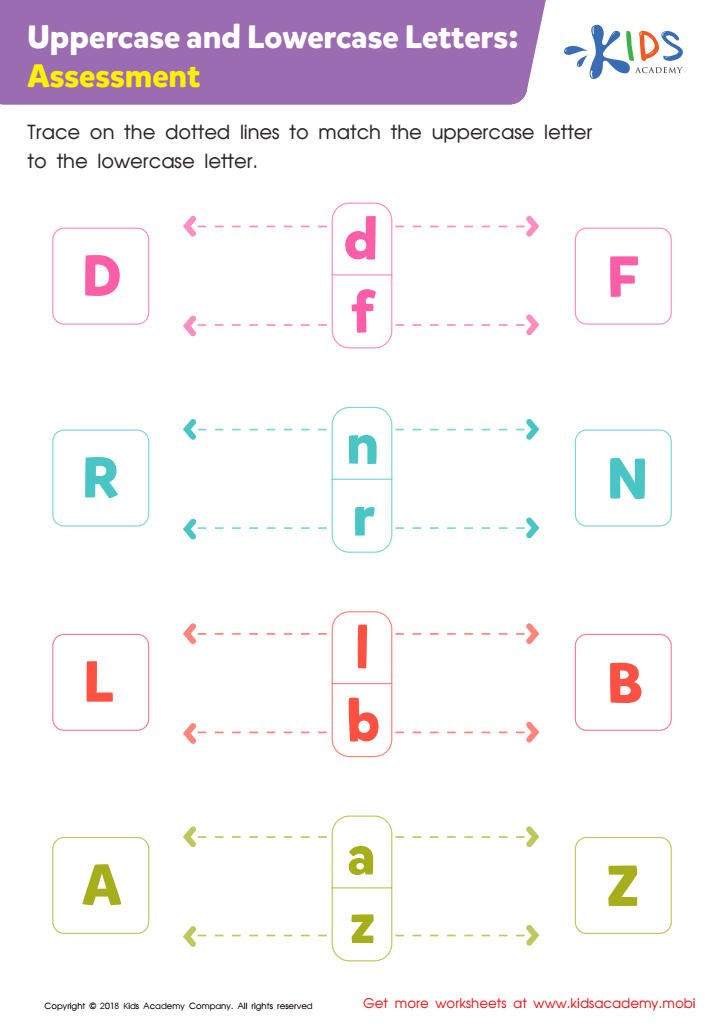Upper & Lowercase Letters worksheets activities for Ages 4-5
2 filtered results
-
From - To


Lowercase Letters Search: Assessment Worksheet


Uppercase and Lowercase Letters: Assessment Worksheet
Upper & Lowercase Letters worksheets activities are an essential part of early childhood education, offering a multitude of benefits for young learners. These activities are specifically designed to help children understand the difference between uppercase and lowercase letters, a foundational skill in reading and writing. Here are several reasons why these worksheets are so useful in the educational journey of a child.
Firstly, Upper & Lowercase Letters worksheets activities foster letter recognition. Recognizing the different forms of each letter is crucial for reading fluency and writing clarity. Through repeated exposure to both uppercase and lowercase versions of letters, children develop the ability to quickly and accurately identify letters in various texts, enhancing their reading skills.
Additionally, these worksheets improve fine motor skills. The activities often involve tracing or writing letters, which requires precise hand movements. This practice strengthens the hand muscles and improves hand-eye coordination, preparing children for more complex writing tasks in the future.
Moreover, Upper & Lowercase Letters worksheets activities support cognitive development. They encourage children to notice details and make distinctions between similar letters, such as 'p' and 'q' or 'b' and 'd'. This attention to detail is a cognitive skill that benefits learners across all subjects, not just reading and writing.
Furthermore, these worksheets are adaptable to various learning styles. Whether a child learns best through visual observation, hands-on practice, or auditory reinforcement, Upper & Lowercase Letters worksheets can be customized to meet their individual needs, making them a versatile tool in personalized learning.
Lastly, engaging in Upper & Lowercase Letters worksheets activities boosts confidence. As children become more proficient in identifying and writing letters in both their uppercase and lowercase forms, they gain confidence in their literacy skills. This newfound confidence can motivate them to tackle more challenging reading and writing tasks, fostering a love for learning.
In conclusion, Upper & Lowercase Letters worksheets activities play a pivotal role in early literacy development. Through enhancing letter recognition, improving fine motor skills, supporting cognitive development, offering adaptability, and boosting confidence, these activities lay a solid foundation for a child's reading and writing proficiency.
 Assign to My Students
Assign to My Students









.jpg)











